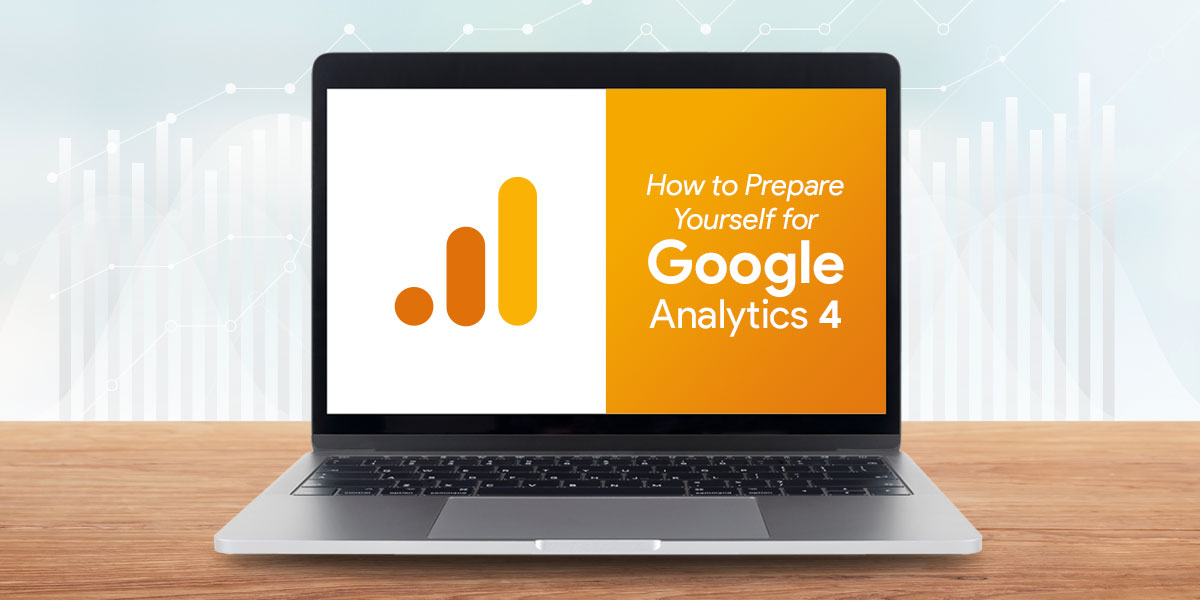
How to Prepare Yourself for Google Analytics 4
Introduction
As a leading digital marketing agency, we recognize the crucial role of analytics technology in helping businesses maintain a competitive edge. We’re enthusiastic about Google Analytics 4 (GA4) and why organizations should prepare for its July 2023 arrival.
With the introduction of GA4, companies will gain access to an array of innovative features and advanced capabilities that will undoubtedly assist them in making more strategic data-driven decisions by acquiring a deeper understanding of their clients.
But to truly capitalize on the plethora of benefits that GA4 presents, companies must initiate preparations without delay. After all, July is just around the corner.
In this comprehensive article, we will delve into the importance of Google GA4 for modern businesses and outline a strategic roadmap with the essential steps you need to take to get set up and begin taking advantage of this newest version of Google Analytics technology.
By reevaluating current analytics practices and aligning with the new features offered by GA4, organizations can benefit from enhanced decision-making processes while uncovering valuable insights to drive stronger customer connections and bottom-line results.
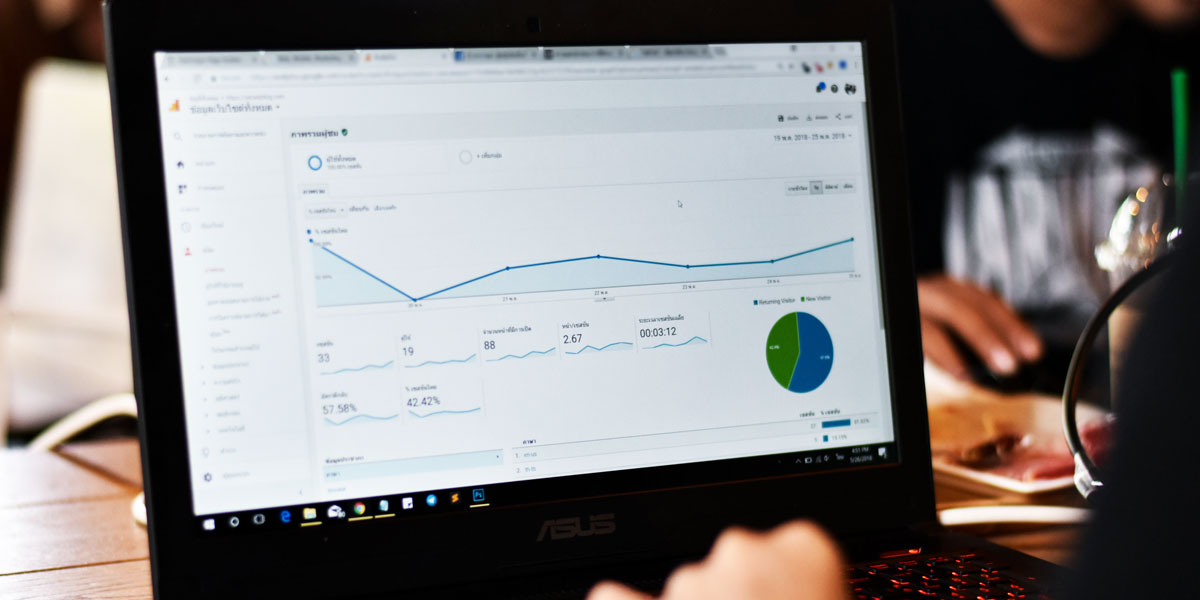
What is Google’s GA4?
Google Analytics 4 is the most recent iteration of Google Analytics, also known as Universal Analytics. Google Analytics 4 is designed to analyze user behavior across various devices and platforms. In contrast to Universal Analytics, which relies on sessions and pageviews, GA4 employs an event-driven approach and harnesses machine learning to shed light on user behavior patterns and develop predictive insights.
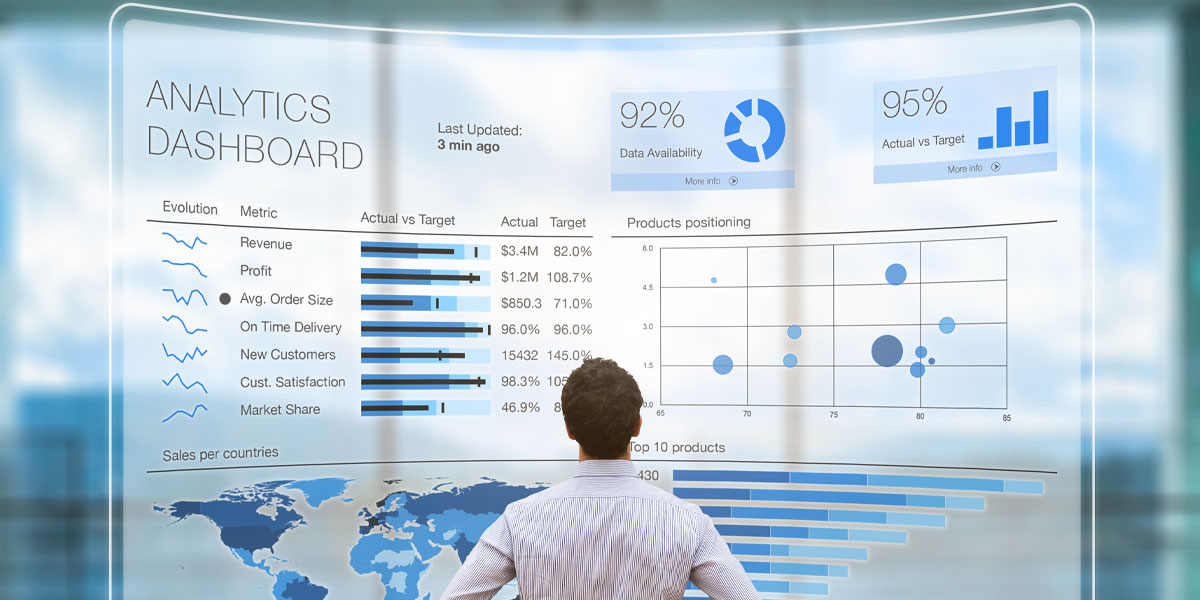
How is this Different from Google’s Universal Analytics?
A crucial distinction between GA4 and Universal Analytics lies in their data-tracking methodologies. While Universal Analytics follows a session and pageview-centered tracking paradigm, GA4 uses an event-based data model.
Meaning that GA4 records and assesses user interactions with your website during a specified time frame, such as clicks, page views, video plays, and more.
Another key differentiator between GA4 and Universal Analytics is their treatment of user data. Universal Analytics has two User metrics – Total Users and New Users. On the other hand, GA4 offers three User metrics – Total Users, Active Users, and New Users.
Furthermore, GA4 emphasizes Active Users rather than Total Users, which is the main focus in most Universal Analytics reports.
The bottom line is that because GA4’s data gathering is centered around events rather than sessions, it necessitates a shift in approach to monitoring user behavior and interpreting the raw data.

Why Should Companies Prepare for Google Analytics 4?
Companies should prepare for GA4 because it provides a better understanding of customer interaction and behavior across multiple devices and platforms than Universal Analytics.
With GA4, companies will have access to new features and capabilities that can help them better understand their customers and track interactions in more detail to make more informed decisions.
For example, Google Analytics 4 includes predictive capabilities that can help identify trends and patterns in user behavior, including churn probability vs. purchase probability.
By preparing for GA4 now, companies can get ahead of the learning curve, take advantage of these benefits and stay ahead of the game regarding customer insights.

The Sun is Setting on Universal Analytics
But be aware, with the clock ticking on the complete phase-out of Universal Analytics in July, the time to make the move to GA4 is now!
Also, be aware that you, unfortunately, cannot import your historical data from Universal Analytics to GA4 because the two versions have different data collection models.
Currently, the only way to import your customer’s historical data from the old Google Analytics is via Google BigQuery, using a special connector from OWOX BI. This business intelligence platform provides tools for collecting, processing and analyzing data from various sources, including Google Analytics.
The OWOX BI connector allows you to upload your historical data from Universal Analytics to Google BigQuery, making it possible to utilize historical data related to your customer journeys in the new GA4 environment.

What are some of the Benefits of GA4?
Google Analytics 4 offers several benefits over Universal Analytics regarding tracking customer interactions. Here are some of the benefits of using GA4 for tracking customer interactions:
1. Improved customer journey tracking
GA4 tracks users and their interactions which are captured as events. User journeys are now tracked more accurately, including customer lifecycles.
2. Improved user engagement analysis
With event-based data, you can track customer interactions with your website or app, from clicks and views to purchases and sign-ups, which allows you to gain insights into how customers engage with your brand and identify areas for improvement.
3. More powerful audiences for your ad campaigns
Google Analytics 4 offers more powerful audience targeting capabilities than Universal Analytics. You can create custom audiences based on specific user behaviors and attributes, such as users who have made a purchase or who have spent a certain amount of time on your website. You can create custom reports and dashboards to track your campaign performance using this valuable new data.
4. More intelligent user privacy and tracking features
GA4 includes more intelligent user privacy and tracking features than Universal Analytics. For example, it contains a new consent mode that allows you to obtain user consent for valuable data collection and processing.
5. Simplified Goals and Events Setup
GA4 greatly simplifies tracking interaction events like user scrolls, searches, clicks and link-follows, and video engagements.
Tracking these events no longer requires additional code or setting up Google Tag Manager as it did with Universal Analytics, which makes the data much more accessible.
Overall, GA4 provides more granular data on user interactions with your website than Universal Analytics. It also provides more powerful audience targeting capabilities and intelligent user privacy and tracking features.

How to Prepare for GA4
Establishing a new GA4 property serves as the initial step toward GA4 readiness. Essentially, a property is a repository for all data linked to a specific website or app.
Under Universal Analytics, creating a separate property for every website or app you wished to monitor was required.
However, GA4 allows for multiple data streams within one property, enabling you to track data from various sources in a single location.
To configure a new GA4 property, adhere to these guidelines:
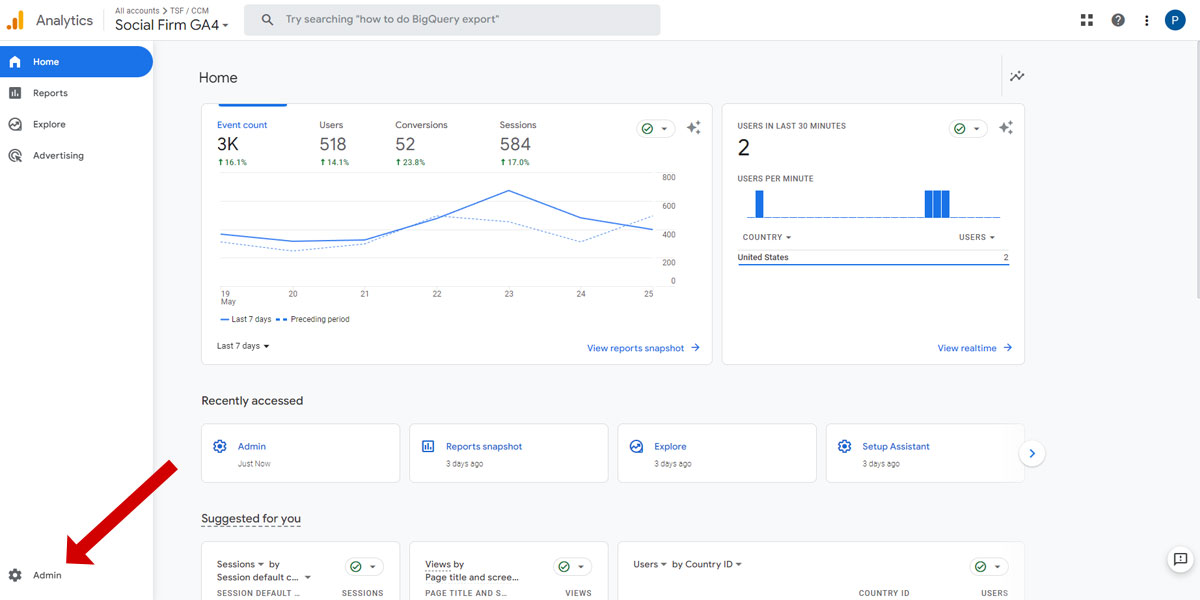
1. Log in to your Google Analytics account and proceed to the Admin section.
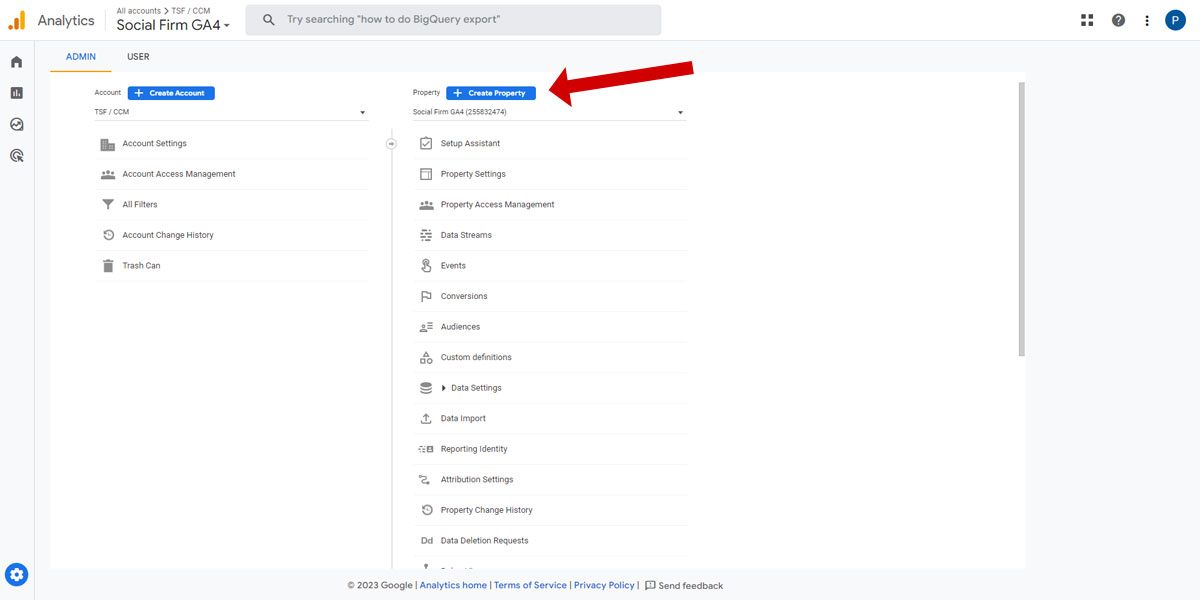
2. Select the “Create Property” button and choose “GA4” from the dropdown menu that appears.
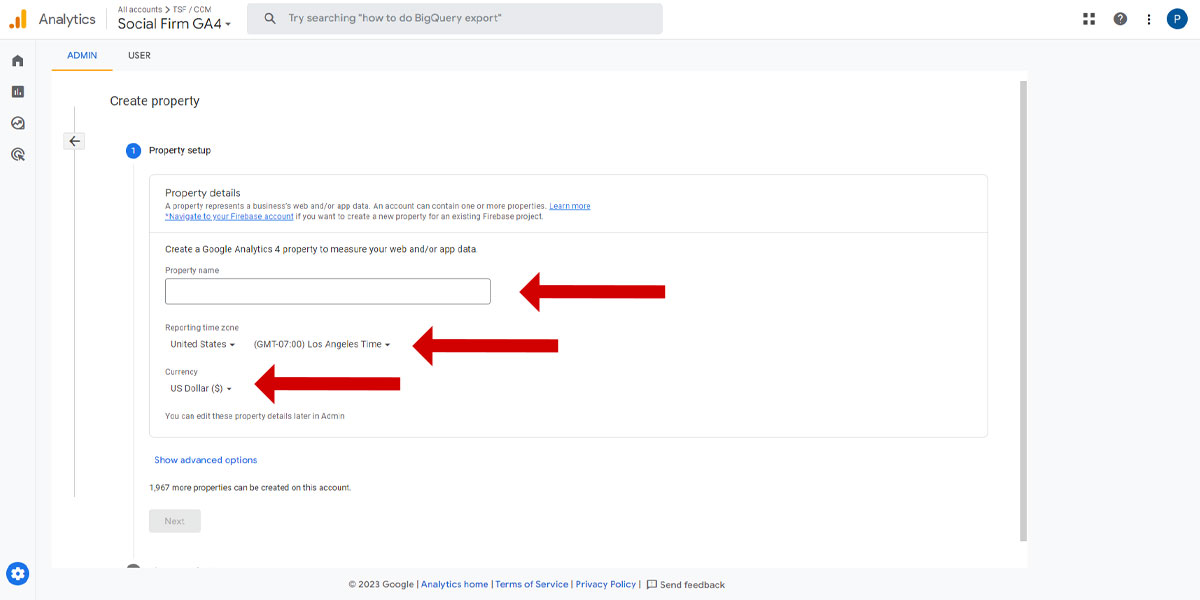
3. Follow the on-screen instructions to establish your new GA4 property. Be prepared to offer basic information about your website or app, such as its name and URL.
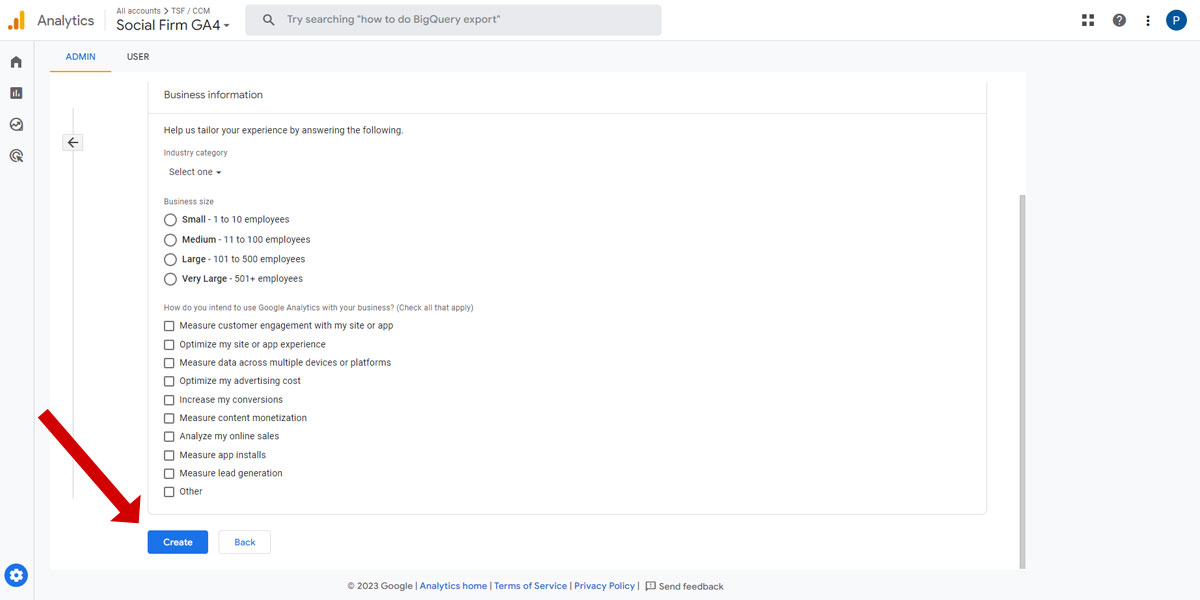
4. After setting up your new GA4 property, embed the GA4 tracking code within your website or app. Doing so will let you collect data utilizing the improved event-driven data model.
Leverage the Power of GA4
Google Analytics 4 offers advanced features and capabilities to better understand user behavior across multiple devices and platforms.
By preparing for GA4, companies can access more analytics tools, collect detailed data on website user interactions, use predictive metrics to make more informed decisions, and benefit from machine learning insights.
Although Universal Analytics is sunsetting in July 2023, the sun is rising on Google’s GA4. Businesses must now prepare to leverage GA4’s new features and event-driven approach to stay ahead of the competition.
To learn more about getting started with GA4, contact the experts at The Social Firm today.
Social Firm
Newsletter Sign-Up
If you loved this article, there's more where that came from. Stay up-to-date with marketing and design insights.